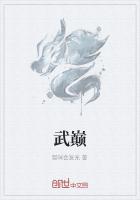THE CLASSIC SPIRIT, THE SECOND ELEMENT.
This grand and magnificent system of new truths resembles a tower of which the first story, quickly finished, at once becomes accessible to the public. The public ascends the structure and is requested by its constructors to look about, not at the sky and at surrounding space, but right before it, towards the ground, so that it may at last become familiar with the country in which it lives. Certainly, the point of view is good, and the advice is well thought-out. The conclusion that the public will have an accurate view is not warranted, for the state of its eyes must be examined, to ascertain whether it is near or far-sighted, or if the retina naturally, or through habit, is sensitive to certain colors. In the same way the French of the eighteenth century must be considered, the structure of their inward vision, that is to say, the fixed form of their intelligence which they are bringing with them, unknowingly and unwillingly, up upon their new tower.
I. THROUGH COLORED GLASSES.
Its signs, duration and power. - Its origin and public supporters.
- Its vocabulary, grammar and style. - Its method, merits and defects.
This fixed intelligence consists of the classic spirit, which applied to the scientific acquisitions of the period, produces the philosophy of the century and the doctrines of the Revolution. Various signs denote its presence, and notably its oratorical, regular and correct style, wholly consisting of ready-made phrases and contiguous ideas. It lasts two centuries, from Malherbe and Balzac to Delille and de Fontanes, and during this long period, no man of intellect, save two or three, and then only in private memoirs, as in the case of Saint-Simon, also in familiar letters like those of the marquis and bailly de Mirabeau, either dares or can withdraw himself from its empire. Far from disappearing with the ancient regime it forms the matrix out of which every discourse and document issues, even the phrases and vocabulary of the Revolution. Now, what is more effective than a ready-made mold, enforced, accepted, in which by virtue of natural tendency, of tradition and of education, everyone can enclose their thinking? This one, accordingly, is a historic force, and of the highest order; to understand it let us consider how it came into being. -- It appeared together with the regular monarchy and polite conversation, and it accompanies these, not accidentally, but naturally and automatically. For it is product of the new society, of the new regime and its customs: I mean of an aristocracy left idle due the encroaching monarchy, of people well born and well educated who, withdrawn from public activity, fall back on conversation and pass their leisure sampling the different serious or refined pleasures of the intellect.[1] Eventually, they have no other role nor interest than to talk, to listen, to entertain themselves agreeably and with ease, on all subjects, grave or gay, which may interest men or even women of society, that's their great affair. In the seventeenth century they are called "les honnêtes gens"[2] and from now on a writer, even the most abstract, addresses himself to them. "Agentleman," says Descartes, "need not have read all books nor have studiously acquired all that is taught in the schools;" and he entitles his last treatise, "A search for Truth according to natural light, which alone, without aid of Religion or Philosophy, determines the truths a gentleman should possess on all matters forming the subjects of his thoughts."[3] In short, from one end of his philosophy to the other, the only qualification he demands of his readers is "natural good sense" added to the common stock of experience acquired by contact with the world. - As these make up the audience they are likewise the judges. "One must study the taste of the court," says Molière,[4] "for in no place are verdicts more just . . . With ****** common sense and intercourse with people of refinement, a habit of mind is there obtained which, without comparison, forms a more accurate, judgment of things than the rusty attainments of the pedants." From this time forth, it may be said that the arbiter of truth and of taste is not, as before, an erudite Scaliger, but a man of the world, a La Rochefoucauld, or a Tréville.[5] The pedant and, after him, the savant, the specialist, is set aside. "True honest people," says Nicole after Pascal, "require no sign. They need not be divined; they join in the conversation going on as they enter the room. They are not styled either poets or surveyors, but they are the judges of all these."[6] In the eighteenth century they constitute the sovereign authority. In the great crowd of blockheads sprinkled with pedants, there is, says Voltaire, "a small group apart called good society, which, rich, educated and polished, forms, you might say, the flower of humanity; it is for this group that the greatest men have labored; it is this group which accords social recognition."[7]
Admiration, favor, importance, belong not to those who are worthy of it but to those who address themselves to this group. "In 1789," said the Abbé Maury, "the French Academy alone enjoyed any esteem in France, and it really bestowed a standing. That of the Sciences signified nothing in public opinion, any more than that of Inscriptions. . . The languages is considered a science for fools.
D'Alembert was ashamed of belonging to the Academy of Sciences. Only a handful of people listen to a mathematician, a chemist, etc. but the man of letters, the lecturer, has the world at his feet."[8] - Under such a strong pressure the mind necessarily follows a literary and verbal route in conformity with the exigencies, the proprieties, the tastes, and the degree of attention and of instruction of its public.[9] Hence the classic mold, - formed out of the habit of speaking, writing and thinking for a drawing room audience.[10]















